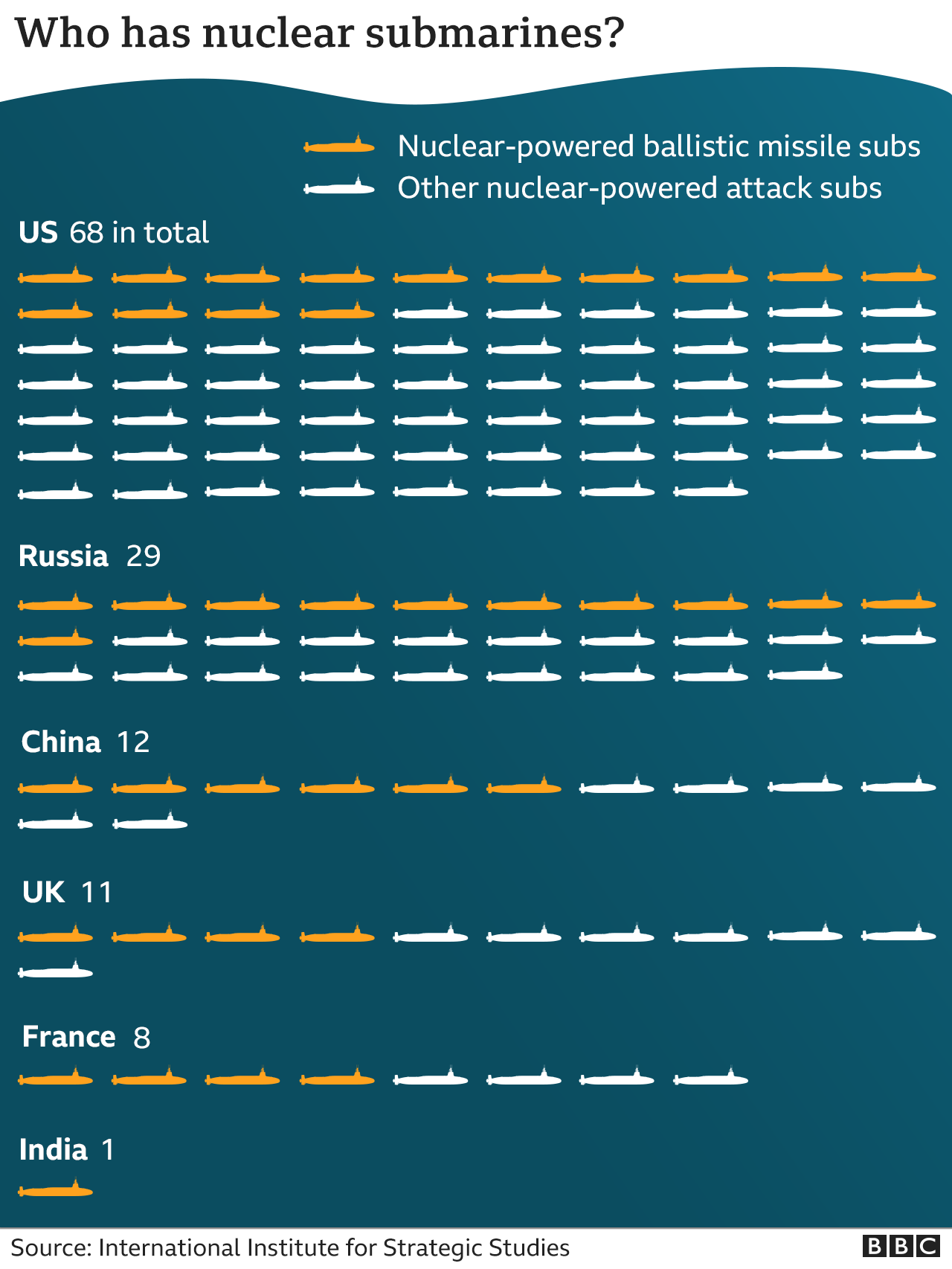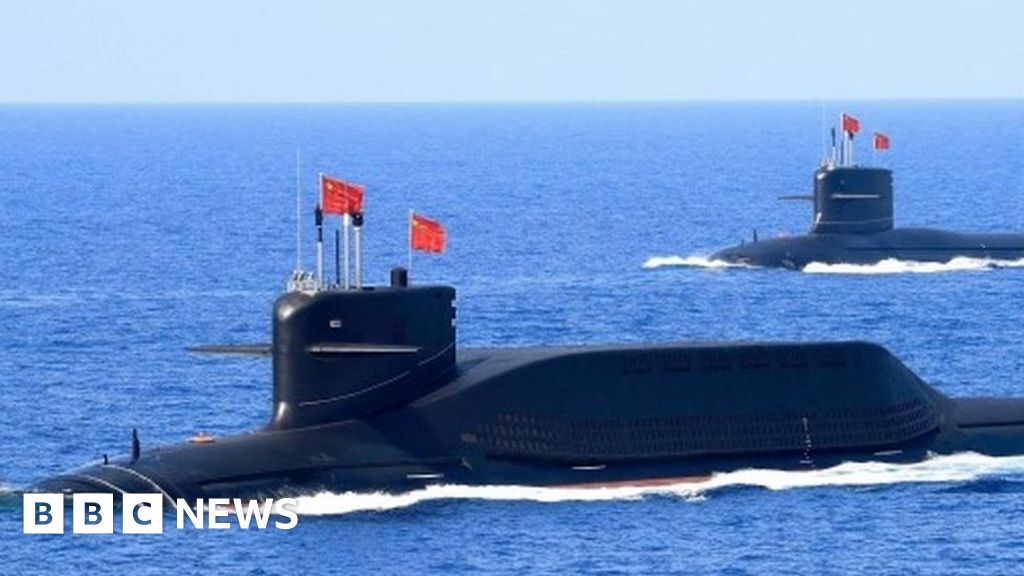China has denounced a historic security pact between the US, UK and Australia, describing the alliance as “extremely irresponsible” and “narrow minded”.
The pact, announced on Wednesday, will see the US and UK provide Australia with the technology to build nuclear-powered submarines for the first time.
It is being widely viewed as an effort to counter China’s influence in the contested South China Sea.
The region has been a flashpoint for years and tensions there remain high.
On Thursday, Chinese Foreign ministry spokesman Zhao Lijian said the newly announced alliance risked “severely damaging regional peace… and intensifying the arms race”.
He criticised what he called “the obsolete cold war… mentality” and warned the three countries were “hurting their own interests”.
Chinese state media carried editorials denouncing the pact, and one in the Global Times newspaper said Australia had now “turned itself into an adversary of China”.
The new partnership, under the name Aukus, was announced in a joint virtual press conference between US President Joe Biden, UK Prime Minister Boris Johnson and his Australian counterpart Scott Morrison on Wednesday.
And while China was not mentioned directly, the three leaders referred repeatedly to regional security concerns which they said had “grown significantly”.
“This is an historic opportunity for the three nations, with like-minded allies and partners, to protect shared values and promote security and prosperity in the Indo-Pacific region,” a joint statement read.


The Aukus alliance is probably the most significant security arrangement between the three nations since World War Two, analysts say.
The pact will focus on military capability, separating it from the Five Eyes intelligence-sharing alliance which also includes New Zealand and Canada.
While Australia’s submarines is the big-ticket item, Aukus will also involve the sharing of cyber capabilities and other undersea technologies.
“This really shows that all three nations are drawing a line in the sand to start and counter [China’s] aggressive moves,” said Guy Boekenstein from the Asia Society Australia.
UK Prime Minister Boris Johnson later said the pact would “preserve security and stability around the world” and generate “hundreds of high-skilled jobs”.
Speaking to the BBC, UK Defence Secretary Ben Wallace said China was “embarking on one of the biggest military spends in history”.
“It is growing its navy [and] air force at a huge rate. Obviously it is engaged in some disputed areas,” he said. “Our partners in those regions want to be able to stand their own ground.”
In recent years, Beijing has been accused of raising tensions in disputed territories such as the South China Sea.
It has been increasingly assertive over what it says are centuries-old rights to the contested region, and has been rapidly building up its military presence to back up those claims.
The US has bolstered its military presence too, and has been investing heavily in other partnerships in the region such as with Japan and South Korea.
Western nations have also been wary of China’s infrastructure investment on Pacific islands, and have also criticised China’s trade sanctions against countries like Australia.
Australia had in the past maintained good relations with China, its biggest trading partner. But the relationship has broken down in recent years amid political tensions.
But there is tension now too with France, after Australia tore up a A$50bn (€31bn; £27bn) deal to build 12 submarines by signing this new pact.
“It’s really a stab in the back,” France’s Foreign Minister Jean-Yves Le Drian told France Info radio. “We had established a relationship of trust with Australia, this trust has been betrayed.”
The nuclear-powered submarines Australia will now be able to build are much faster and harder to detect than conventionally powered fleets. They can stay submerged for months, shoot missiles longer distances and also carry more.
Having them stationed in Australia is critical to US influence in the region, analysts say.
The US is sharing its submarine technology for the first time in 50 years. It had previously only shared technology with the UK.
Australia will become just the seventh nation in the world to operate nuclear-powered submarines, after the US, UK, France, China, India and Russia.
But they will not carry nuclear weapons, and Australia has reaffirmed it has no intention of obtaining them.
Meanwhile New Zealand said it would ban Australia’s submarines from its waters, in line with an existing policy on the presence of nuclear-powered submarines.
New Zealand, although a Five Eyes member, has been more cautious in aligning with either the US or China in the Pacific. Prime Minister Jacinda Ardern said her nation had not been approached to join the pact.
